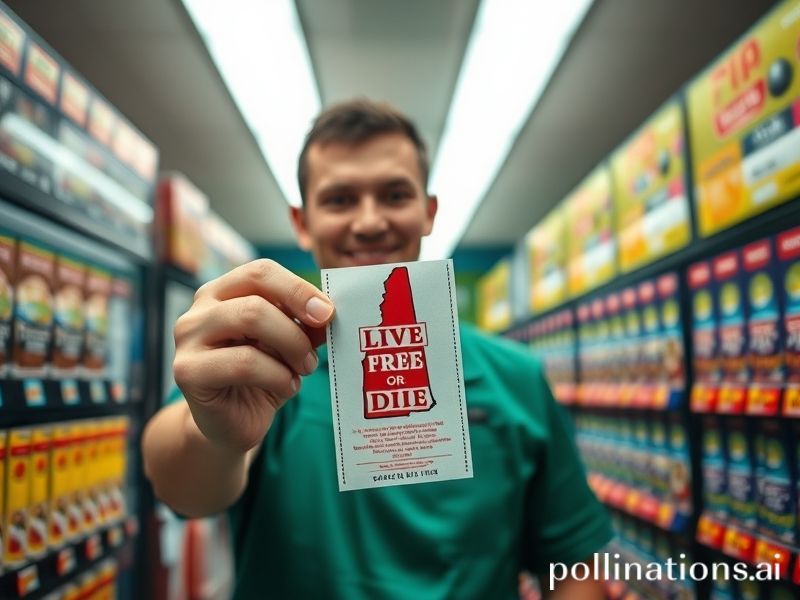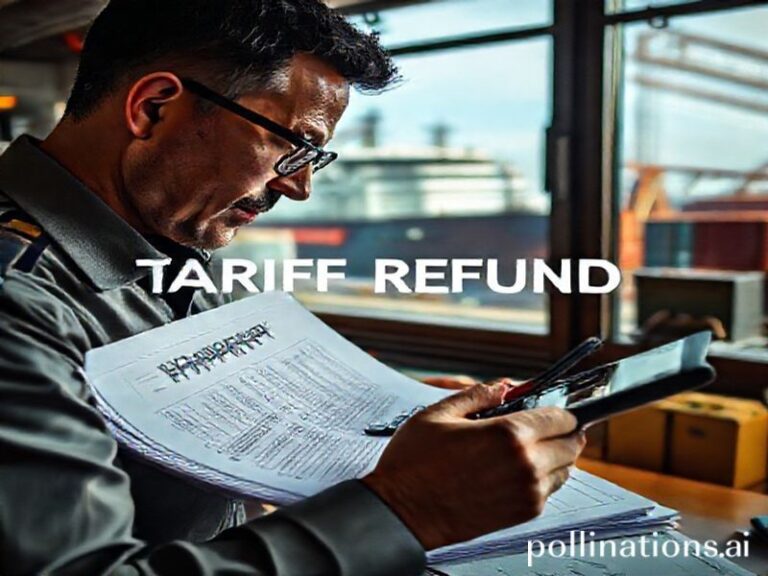From Concord to Kolkata: How a Tiny NH Lottery Ticket Became the World’s Most Democratic Tax on Hope
The Granite State’s weekly ritual of scratching, tapping, and weeping over the New Hampshire Lottery looks, from 30,000 feet, like a charming New England quirk—until you notice the same scene playing out in 200-plus nations, each with its own fluorescent ticket and slightly more depressing odds. In Mumbai, commuters queue for “Playwin”; in São Paulo, they worship “Mega-Sena”; and in Warsaw, retirees clutch “Lotto” slips like Vatican indulgences. The NH Lottery, then, isn’t a provincial pastime; it’s a micro-budget episode of the same global sitcom in which Homo sapiens, armed with statistics degrees and Google, still decide that 1 in 292 million is a perfectly reasonable retirement plan.
Consider the international balance sheet. Last fiscal year, the NH Lottery coughed up roughly $120 million for state education—enough, if you’re feeling optimistic, to buy 1.2 million Chromebooks, or, if you’re feeling realistic, to plug about six percent of the potholes on I-93. Compare that to Spain’s “El Gordo,” whose Christmas draw alone shuffles €2.4 billion in prize money faster than the European Central Bank can mutter “moral hazard.” Or look at Japan’s “Takarakuji,” which politely funnels winnings into local cultural projects, ensuring every fishing village gets a new kabuki theater no one asked for. The amounts differ, but the script is the same: citizens voluntarily tax themselves in the hope that probability will briefly forget how to count.
Of course, every lottery is a Rorschach test for a nation’s psyche. In the United States, the NH Lottery advertises itself as “benefiting New Hampshire’s kids,” which is a heart-warming way of admitting the kids are collateral marketing. In China, where lotteries are state-run and squeaky-clean on the surface, a black-market ecosystem has blossomed so large that Macau now offers side-bets on whether Beijing will rewrite the rules before the next drawing. Meanwhile, in South Africa, PowerBall fever spikes so high that radio stations run traffic reports on queue lengths outside convenience stores—proof that gridlock can be self-inflicted without a single car.
The darker joke is how seamlessly the lottery dovetails with global inequality. A minimum-wage worker in Manchester, New Hampshire, spends the same two dollars—roughly the price of half a gallon of milk—on a ticket that a tech bro in Singapore buys “ironically” while waiting for his oat-milk latte. Both are statistically doomed, but the tech bro can expense it as “research into behavioral economics.” The worker gets a free side order of existential dread. Multiply by eight billion people and you have the world’s most egalitarian tax: everyone loses together, just not at the same speed.
Technology, naturally, has internationalized the misery. Mobile apps now let a tourist from Reykjavík buy a NH scratch-off from his Airbnb in Concord, while blockchain evangelists hawk “provably fair” crypto-lotteries that are about as transparent as a Moscow mayoral election. The UN, ever the life of the party, recently floated a “Global Carbon Lottery,” where every ticket plants a tree—though cynics note the saplings are conveniently planted in jurisdictions where satellite imagery is classified. Even the International Monetary Fund has begun modeling “volatility cushions” based on lottery revenue, essentially admitting that entire economies now budget for their citizens’ bad math.
And yet, for all the spreadsheets and policy papers, the enduring appeal remains sublimely irrational: a chance, however microscopic, to flip the bird at the cosmic accountant who tallied our birthplaces and bank accounts. In that sense, the NH Lottery is less a revenue stream than a planetary confession booth, where we admit we know the house always wins but still genuflect to the neon cross of instant wealth.
So next time you see a New Hampshirite solemnly rubbing a nickel across a “Granite Wins!” ticket, remember: somewhere in Lagos, a bus driver is doing the same; somewhere in Helsinki, an AI is calculating the exact millisecond hope dies. The numbers change, the flags differ, but the punchline is eternal. We are all, it turns out, citizens of the same improbable republic—issuing passports to disappointment, one scratch at a time.







